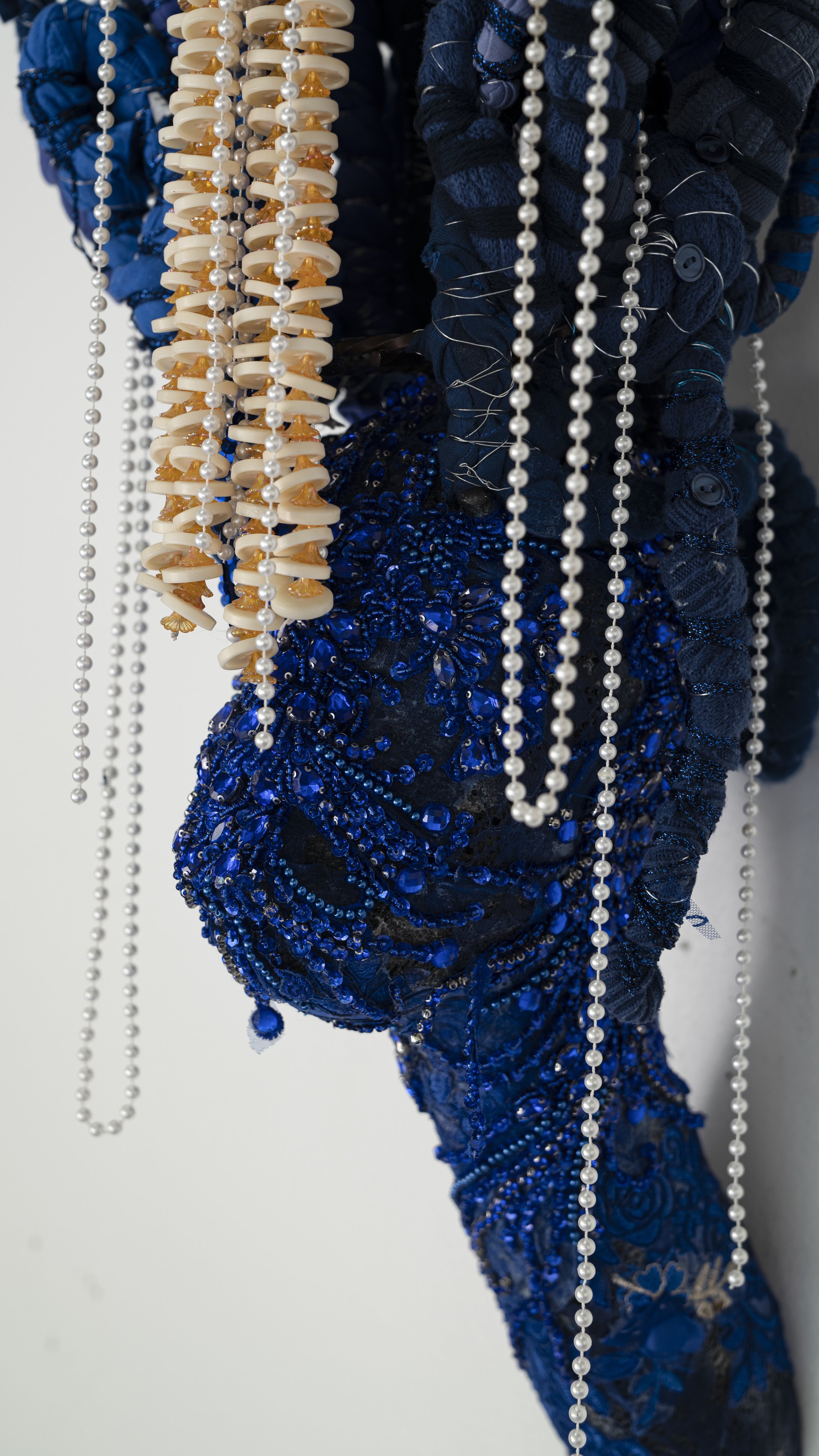June 2023
Victoria Udondian
Film directed by Alexa Caravia for Fountainhead Arts
Victoria Udondian tried once before to make it to Miami for a Fountainhead Residency, but a global pandemic got in the way. So when she was invited to try again in the summer of 2023, Udondian knew she should jump on the opportunity: Udondian was still reflecting on the closing of How Can I Be Nobody, a large-scale solo exhibition at SMACK Mellon in Brooklyn that took over 3,000 hours to make. It wasn’t chance that How Can I Be Nobody swallowed her whole: For the show– a meditation on labor and repressive conditions faced by Black and Brown communities in Africa and Asia– Udondian invited immigrants and first-generation Americans to her studio to work alongside her, where she would collect their migration stories and family histories while casting some of their body parts. The resulting sculptures were installed in boats and beds of flowers, or assembled in towering installations with found textiles as a metaphor of movement and persistent subjugation.
“I wanted to speak to new colonial conditions and how Black and Brown bodies are always questioning and confronting these repressive conditions,” she says. That line of thinking is ever-present for Udondian, who is concerned with revealing how a culture of mass consumption in the West pollutes and enslaves those in the global South. She often uses found textiles - cast off as waste from the US and Europe that winds up in landfills or thrift shops in Africa - to discuss the cycle of harm mass consumption produces.
Between the closing of the exhibition and wrapping up another semester of teaching, the time and space at Fountainhead centered Udondian’s process. She found herself visiting the textile shops that line Little Haiti for European lace, assembling it with other objects in an African hairstyle around a cast of her face. The project derives from research into the white-centric bust sculpture fused with uncovering the architectural influences of African hairstyles of the 1960s.
“Stumbling into this research seated so close to the Caribbean,” she says, “really means something.”
Words by Nicole Martinez






